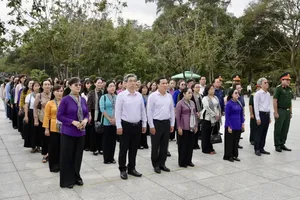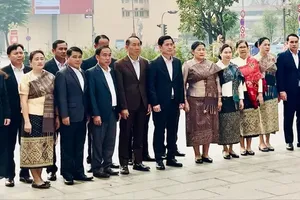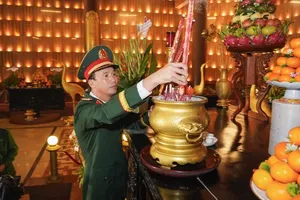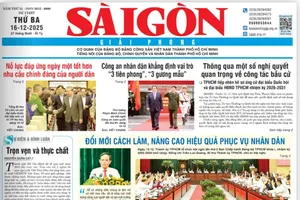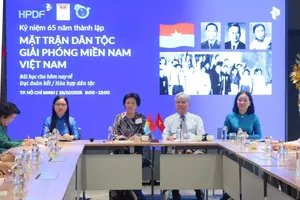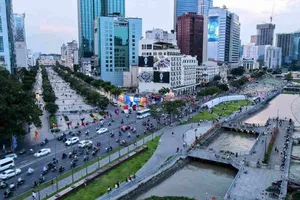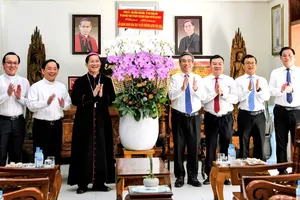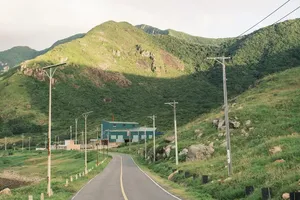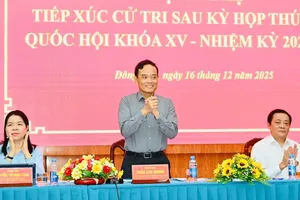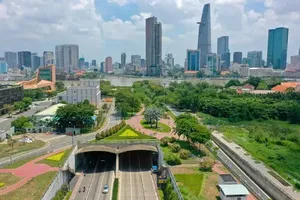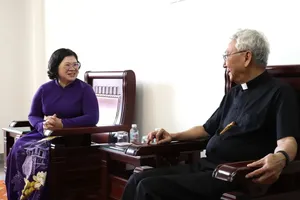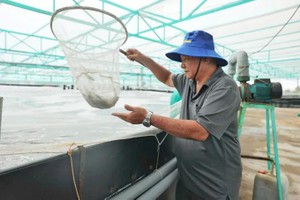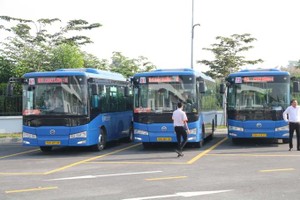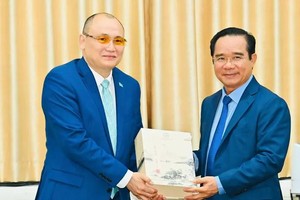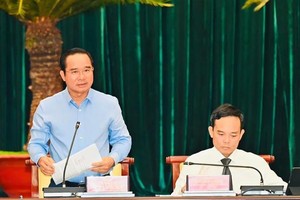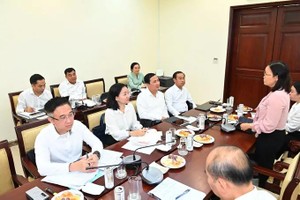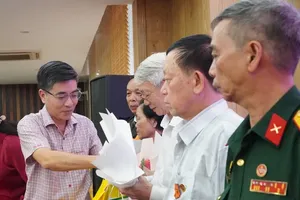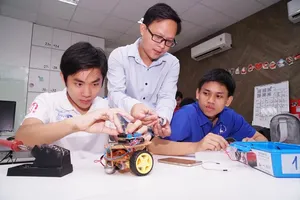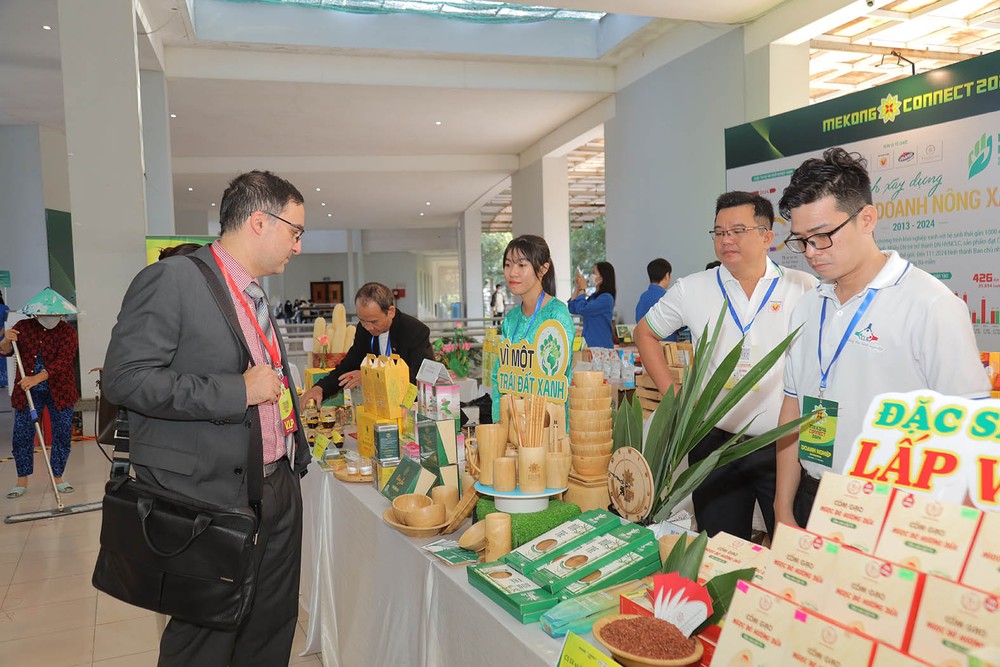
Within the framework of the Mekong Connect Forum 2024 held yesterday in An Giang Province’s Long Xuyen City, a plenary session was convened by the People's Committee of Ho Chi Minh City and 13 provinces and cities in the Mekong Delta region. The theme of the session was 'Investment Capital and Human Resources for Sustainable Linkages within the Mekong Delta, Ho Chi Minh City, and the Nation.'
Minister of Science and Technolog Huynh Thanh Dat, in his opening address, underscored the significance of Mekong Connect, a prestigious annual forum that plays a vital role in connecting the Mekong Delta, Ho Chi Minh City, and the nation.
The forum is not just a platform for sharing ideas; it's a space for localities, businesses, experts, and policymakers to discuss and propose practical solutions to foster sustainable development across the region.
The Mekong Delta, as described by Minister Huynh Thanh Dat, is a region of immense potential, boasting vast rice fields, rich aquatic ecosystems, and abundant labor resources. However, this fertile delta also faces formidable challenges posed by climate change, salinity intrusion, and land subsidence.
Minister Huynh Thanh Dat emphasized that the close connection between the Mekong Delta and Ho Chi Minh City is the key to overcoming challenges, optimizing resources and increasing value for the region.
He suggested that localities focus on researching a number of orientations, such as: issuing support mechanisms and policies, promoting the innovative startup ecosystem while developing and applying biotechnology for sustainable development, investing in developing transport infrastructure and increasing investment capital and high-quality human resources.
Recognizing that the Mekong Delta region is facing many serious challenges, Chairman Ho Van Mung of the An Giang Provincial People's Committee emphasized the need for a long-term, sustainable development strategy. This strategy should prioritize water resource management, technological innovation in agriculture and aquaculture production and processing, as well as investment in comprehensive infrastructure development.
Standing Vice Chairman of the Ho Chi Minh City People's Committee Duong Ngoc Hai stated that in the near future, Ho Chi Minh City will persist in enhancing its pivotal and leading role in fostering development connections. This effort aims to execute transformative strategies focused on advancing transportation infrastructure, digital infrastructure, and enhancing the quality of human resources, thereby generating new momentum and development opportunities for the Mekong Delta region as well as other areas and localities across the country.
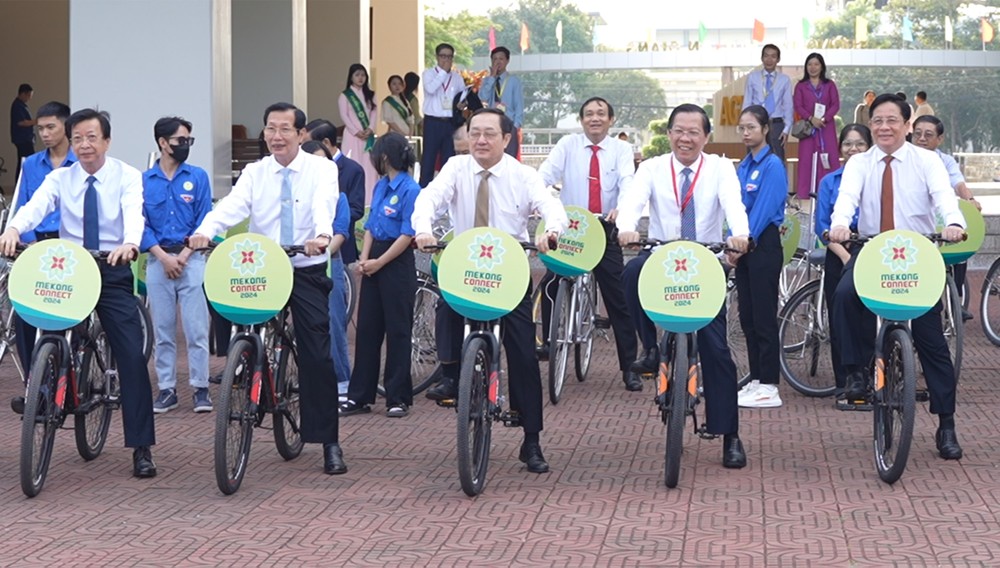
To enhance the effectiveness of regional collaboration efforts in the present context, Standing Vice Chairman of the Ho Chi Minh City People's Committee Duong Ngoc Hai emphasized the necessity for Ho Chi Minh City and the Mekong Delta localities to work together in cultivating high-quality human resources.
He highlighted the importance of prioritizing partnerships in the training of scientific and technical professionals with expertise in software technology, biotechnology, mechanics, electronics, and chemistry.
Additionally, he advocated for strengthening connections and cooperation among local universities and colleges to facilitate the training of skilled human resources that meet the socio-economic development requirements of the entire region.
He emphasized that a key priority is to implement strategies aimed at attracting investment capital. In particular, Ho Chi Minh City and the Mekong Delta region should concentrate on enhancing their transport infrastructure in a cohesive manner. This includes the development of roads, waterways, seaports, airports, and logistics systems, with a special focus on highways, docks, and modern warehousing solutions to lower transportation costs and reduce freight transit times.
Furthermore, there should be an exploration of transportation methods that can boost tourism while simultaneously fostering trade in goods and services, according to Mr. Hai. Moreover, it is essential to research and establish mechanisms and policies that encourage investment, improve the investment climate, and facilitate the resolution of challenges faced by businesses, particularly local start-ups.
